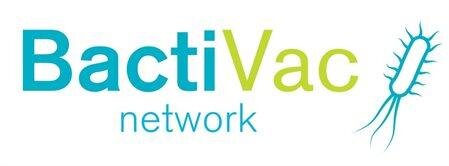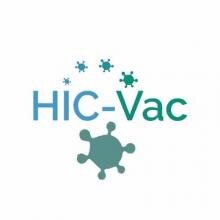GCRF Vaccine Networks
The International Veterinary Vaccinology Network is one of five Networks funded through the MRC/BBSRC GCRF Networks in Vaccine R&D initiative.
Please see below for details of the other four GCRF Vaccine Networks which may be of interest to members of the International Veterinary Vaccinology Network.
VALIDATE

The VALIDATE Network based at the University of Oxford aims to promote vaccine R&D for complex intracellular pathogens that cause significant disease burden in LMICs. The initial focus is on Mycobacterium tuberculosis (which causes TB), Leishmania species (leishmaniasis), Burkholderia pseudomallei (melioidosis) and Mycobacterium leprae (leprosy). The Network is creating an engaged and interactive community of researchers who are forming new cross-pathogen, cross-continent, cross-species and cross-discipline collaborations, generating new ideas, taking advantage of synergies and quickly disseminating lessons learned across the Network, with the aim of together making significant progress towards vaccines against the focus pathogens. Key interests are in-vivo research, cross-pathogen studies, projects promoting the One Health agenda, and collaborative projects involving LMICs and Early Career researchers.
Contact Details
Email: Samantha [dot] Vermaak [at] ndm [dot] ox [dot] ac [dot] uk
Web: http://www.validate-network.org
Twitter: @NetworkValidate
BactiVac

The Bacterial Vaccines (BactiVac) Network based at the University of Birmingham will accelerate the development of vaccines against bacterial infections, particularly those relevant to LMICs. The BactiVac Network will bring together academic, industrial and other partners involved in vaccine research against human and animal bacterial infections from the UK and LMICs. The Network will foster partnership and provide catalyst project and training funding to encourage cross-collaboration between academic and industrial partners.
Contact Details
Email: BactiVac [at] contacts [dot] bham [dot] ac [dot] uk
Web: www.birmingham.ac.uk/bactivac
Twitter: @BactiVac
HIC-Vac

The Human Challenge Model (Hic-Vac) Network based at Imperial College London aims to support, develop and advocate for human infection challenge studies (HIC) to accelerate the development of vaccines against pathogens of high global impact. This Network will enable open sharing of knowledge and expertise, using Network resources to increase HIC use in the UK and LMICs, disseminating best practice, enhancing training and fostering new collaborative studies relevant to high-impact pathogens.
Contact Details
Email: c [dot] puddephatt [at] imperial [dot] ac [dot] uk
Web: https://www.hic-vac.org
Twitter: @hic_vac
IMPRINT

Immunising pregnant women and infants (IMPRINT) Network based at Imperial College London aims to build a sustainable Network of stakeholders from basic science, immunology, vaccinology, social sciences, industry, public health, national and international policy makers, to increase protection from infection in neonates via the safe and effective use of vaccines in pregnancy and in newborns. The Network will nurture discovery and implementation science in close collaboration with sites and investigators in LMICs, including via an IMPRINT fellowship scheme.
Contact Details
Email: IMPRINT [at] linq-management [dot] com
Web: http://www.imprint-network.co.uk/
Twitter: @IMPRINT_network